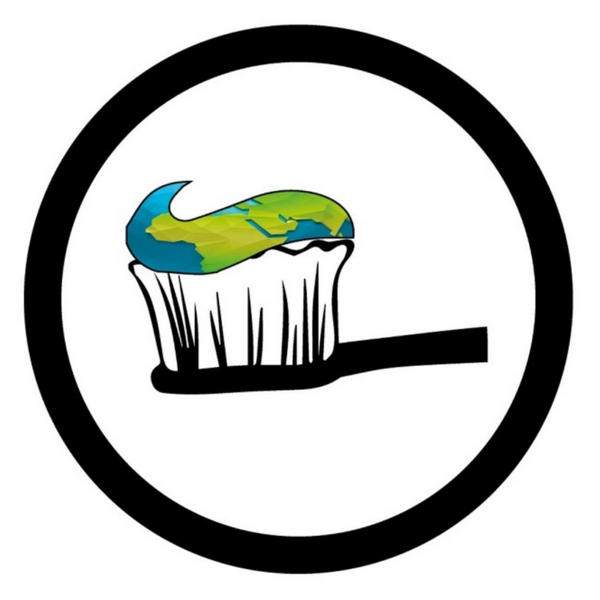To put it simply, there’s no specific type of toothbrush dentists recommend. All they advise is that you brush for 2 minutes, twice a day, using a soft bristle toothbrush with a small head and flexible neck. This is because soft bristles are much more comfortable and softer on the gums and enamel, and a small head will reach all areas of the mouth, including the back molars.
6 General Tips for Choosing a Toothbrush
There are a number of things you should consider when choosing a toothbrush, such as the cost, the environment, and the size of the toothbrush.
1. Head Size & Shape
First and foremost, you want to consider the size and shape of the toothbrush head. The perfect toothbrush head for you should allow easy access to all areas of the mouth, including the very back molars/wisdom teeth.
For most adults, a ½” wide and 1” high head is easiest and most comfortable. Although there are larger toothbrush heads available on the market, they tend to be harder to manoeuvre and you may struggle to clean those hard-to-reach areas right at the back.

2. Cost
Another important factor to think about when choosing the right toothbrush for you is cost. Although there are some more affordable electric toothbrush options on the market, they are considerably more expensive than their manual counterparts. In addition to the initial cost of an electric toothbrush, you will need to replace the toothbrush head as often as you replace your manual toothbrush (every 3-4 months), especially if the bristles are frayed.
For reference, the average price of a manual toothbrush can range between £1-10, whereas some electric toothbrushes can retail up to £100.
3. Personal Preferences
You also need to think about what type of toothbrush you’re actually going to enjoy using the most. You might not like the vibrating sensation of an electric toothbrush, and therefore manual would be a better choice. You may actually find an electric toothbrush easier to use, especially if you struggle with mobility, therefore an electric toothbrush might be the best option.
 It's all down to your personal preference and what works best for you.
It's all down to your personal preference and what works best for you. 4. Effectiveness
The main purpose of a toothbrush is to clean your teeth, so you want to make sure you’re choosing a toothbrush that will effectively do so.
Numerous scientific studies have been carried out to determine whether electric or manual toothbrushes are more effective at eliminating plaque and reducing gum disease, and after reviewing 30 studies, there was no significant difference between the two types of toothbrushes in their ability to carry out these tasks.
As long as you brush your teeth properly for 2 minutes in the morning and night, manual toothbrushes are just as effective at cleaning your teeth than electric toothbrushes.
5. Safety & Hygiene
Granted all toothbrushes with an ADA Seal of Approval have been tested for safety, there may be certain individuals which may find that a particular type of toothbrush is safer.
For example, if you tend to brush vigorously, you can risk damaging your gums and teeth, and therefore an electric toothbrush can alert you if you’re putting too much pressure on your mouth.
Some studies suggest, however, that using an electric toothbrush may increase the amount of bacteria in the bloodstream more than a manual toothbrush. This wouldn’t pose a risk for those with a strong immune system, but it could increase the likelihood that people with specific heart conditions could acquire a potentially dangerous infection in the heart.
In terms of hygiene, you can’t get safer than a bamboo toothbrush, with its naturally antimicrobial properties inside the bamboo which kill bacteria that penetrate its surface, providing long-lasting protection against harmful bacteria.
6. Environmental Impact
Last but not certainly not least, it’s definitely worth considering the environmental impacts of the product. Did you know that 99% of all toothbrushes in the world are made from plastic? But with more and more people reconsidering the use of plastic products, bamboo manual toothbrushes are becoming a popular alternative for a number of reasons.
Firstly, the handle on a bamboo toothbrush is usually manufactured with minimal use of electronic machinery, in comparison to a plastic toothbrush which is produced in a factory, using a number of machines to make the product.
A bamboo toothbrush also eliminates plastic waste, helping to save the environment (especially the oceans and marine life). The bamboo handle of the brush is also fully compostable and biodegradable, meaning it will safely return to the soil within approximately 6 months.
 if you’re looking to adopt a more eco-friendly dental routine, bamboo toothbrushes are the way to go.
if you’re looking to adopt a more eco-friendly dental routine, bamboo toothbrushes are the way to go.Bamboo Toothbrushes
Specifically designed by dentists here at Brush Fresh Co., our eco-friendly bamboo toothbrushes are perfect if you’re looking to create a more eco-conscious lifestyle. Some of its key features include:
- BPA free
- Blunted bristle tips ensure they do not cause tooth wear and abrasion
- Cruelty free
- Fully biodegradable
- Sustainable and ethically sourced
🪥
Brush Fresh Co. is founded and run by a group of UK-based dentists, who specialise in environmentally-friendly and sustainable dental products. From biodegradable bamboo toothbrushes to zero waste toothbrush tablets, our product range has been designed to put both your dental health and the environment first. For more information and advice, such as how to reduce household waste & how to store a bamboo toothbrush, head over to our blog page or get in contact with us here.
Written by Kate, on behalf of Brush Fresh Co - the UK's Dental Experts Providing eco-friendly dental care.

